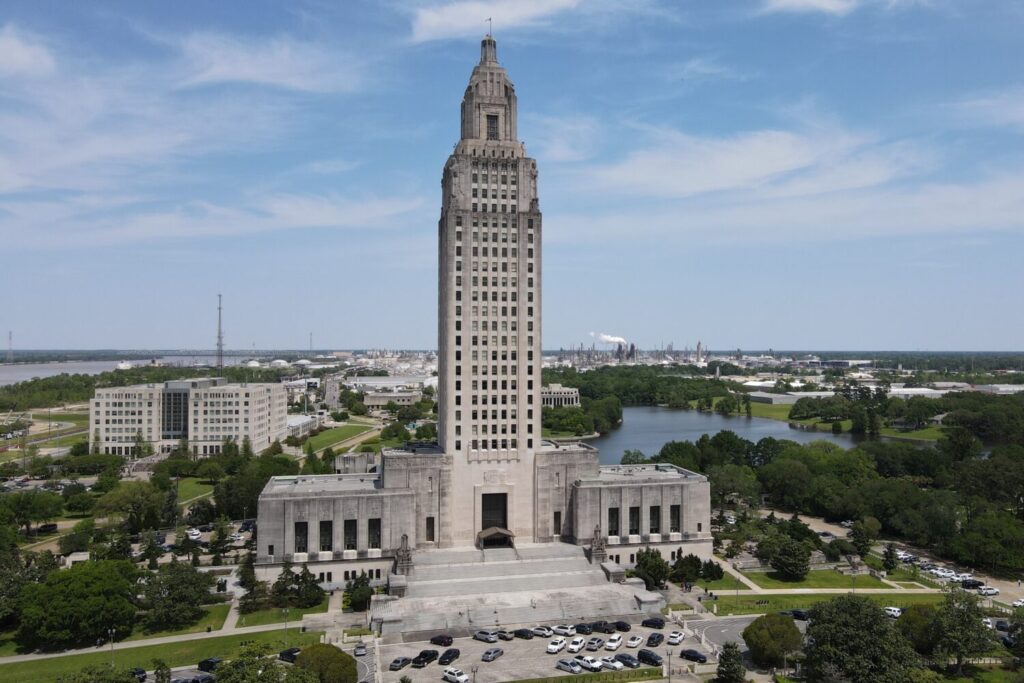A bill that would allow local governments to suppress public records for economic development reasons was introduced Thursday in the Louisiana House of Representatives.
House Bill 461The bill, sponsored by Rep. Stephen Jackson (D-Shreveport), passed 79-18 and will now be sent to the Senate for consideration.
The bill would allow mayors, parish presidents and local government officials to declare records confidential if they believe release would have an “adverse effect” on active business negotiations. It would also allow companies and people negotiating with the government to request confidentiality.
The scope of confidentiality will extend to “records of local government expenses related to negotiations.'' Local governments will be required to publish notices online with general information about each negotiation, but the notices will not have to include details such as the name of the company, the amount being negotiated or the proposed project location.
Details will only be made public after the local government declares the end of negotiations or two years later, whichever comes first.
The bill was considered at the end of Thursday afternoon's floor session, with no questions, discussion, or debate.Lawmakers' lack of engagement with the bill reflected the House Governmental Affairs Committee. bill hearing Last week, they asked several questions before proceeding with it without objection.
Mr. Jackson told the committee that when he served as a local government commissioner, consultants from out-of-state jurisdictions filed public records requests to learn what public incentives were being offered to businesses. That is why he proposed this bill. Consultants use that information for competitive purposes or to lure projects.
The argument at last week's hearing came from Scott Sternberg, a First Amendment lawyer who represents the Louisiana Press Association, which opposes the bill.
A company has promised 100 high-paying jobs in Jefferson Parish.Now I'm only 13 on half the salary.
Sternberg said Jackson's proposal would allow local governments to hide any records they want simply by claiming they are related to economic development. Almost everything parish councils and school boards do, like hiring companies to pave roads or awarding bus contracts, has an economic development angle, Sternberg said.
Jackson disagreed, saying the bill's purpose is not to force local governments to hide these routine business records. Rather, Jackson said, the measure would give confidentiality to records related to large projects that bring jobs to parishes and cities.
About five years ago, Congress enacted a similar bill that would allow the Port Commission to keep records out of the public's reach for economic development reasons. Since then, Sternberg said, it has become very difficult to obtain records from the ports because they insist everything is related to economic development. He predicts that if Jackson's bill becomes law, local governments will simply follow suit.
Public access to government records is the cornerstone of a transparent democracy. Public records allowed investigative journalists and local monitoring groups to expose danger, government corruption, inaction, and other failures. Every state and federal government has some version of a “sunshine” law for records.
State lawmakers have been making gradual efforts. Louisiana Public Records Lawhas changed it dozens of times since the law was enacted in 1940 to disable public access to various categories of government records.
Congress is currently considering a number of such bills. measurement Sen. Heather Cloud (R-Ville Platte) would adopt a broad exemption in the Public Records Act for any document that is “part of the process by which government decisions or policies are developed.”
On Wednesday, the House approved the following bill: invoice It would initially repeal provisions in current law that hold public officials personally liable for arbitrarily and capriciously withholding records or failing to respond to public records requests, according to Rep. Les Farnham (R-Sulfur). It was planned.
Farnham told the full House of Commons on Wednesday that most civil servants affected by the provision “are probably very poorly paid and just doing what they're told.”
Other lawmakers pointed out that without personal liability, there is little reason for government employees to turn over public records.
The discussion led to a compromise, with Farnham amending the bill to exempt “public officials or representatives of the heads of public bodies” who are “specifically authorized by the Administrator to respond” to public records requests. We have arrived at the content.
Farnham's bill is currently pending consideration in the Senate.
Get the morning headlines delivered to your inbox


